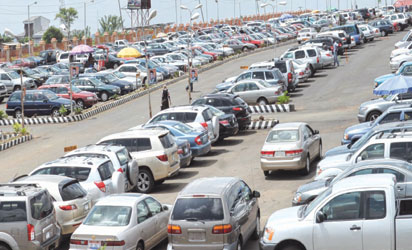
Recently, the Minister of Industry, Trade and Investment; Otunba Adeniyi Adebayo told journalists that his ministry would soon submit a new National Automotive policy to the Federal Executive Council (FEC) for the approval.
He had stated that the auto policy was first reviewed with the aim of increasing local production of vehicles.
Apparently admitting that the policy had failed, the Minister said “the new policy also has as one of its objectives a plan to increase employment in the automotive value chain”.
He added that, the new policy will help the country to transit from semi-knock down to completely knock down/completely built-up manufacturing.
The Federal Government had initiated the National Automotive Policy in 2014, apparently in a bid to provide a framework that will support automobile companies, boost local content and establish a vehicle financing scheme that would provide funds for citizens to buy new cars.
Other motives of the policy include job creation, stimulation of the value chain, diversification of the economy, provision of affordable vehicles for the average Nigerian, as well as boosting foreign direct investment into the country.
The policy represents government’s boldest step at reviving local car assembly in over three decades. The policy seeks to encourage local manufacture of vehicles while phasing out the importation of used vehicles.
Recent investigations carried out by our correspondents at two biggest vehicle terminals in Lagos as well as the popular Berger Auto Market in Apapa, have revealed that a high percentage of vehicles coming into Nigeria violate the government’s automotive policy.
Even though government had in 2010 raised the age limit of vehicles to be imported into the country from 10 years to 15 years, investigations also revealed that the Nigeria Customs Service is deliberately violating this trade policy by allowing older vehicles come in through the ports.
Confirming the influx of over-aged vehicles, an official of PTML Terminal, had in an interview with this newspaper confirmed that the terminal is flooded with damaged, ‘accidented’ and relatively low grade vehicles.
He said here have been more of this grade of vehicles in Nigeria since the auto policy came into being.
Keshinro confirmed that importers now bring in low grade, salvaged vehicles, and these are equally older models rather than newer models. He said, relatively, majority of the vehicles being imported were over-aged.
In trying to implement the automotive policy, the National Automotive Design and Development Council (NADDC) engineered an increased in tariff on imported new vehicles to 70 per cent as a way of discouraging Nigerians from buying vehicles from outside the country.
From available data, Nigeria produces less than 10 per cent of the vehicles used in the country. The Automotive Policy was to provide a framework that will support automobile companies, boost local content and establish a vehicle financing scheme that would provide funds for citizens to buy new cars.
But, the objective of the policy has been largely defeated, owing to the apparent seriousness of the part of the Federal Government.
In between the time that the auto policy was formulated and now, a lot of issues, relating to policies and government interventions have come up.
Some of the policy directives have had to do with adjustment and re-adjustment of import duty on categories of vehicles to be imported.
A review will clearly take care of the lapses that have been identify in the years that the auto policy has been in existence.
It is a shame that while some smaller African nations are already placing total ban on importation of used vehicles, Nigeria is opening her borders to all manners of scraps in the name of used vehicles.
The story of Ghana which embraced the same policy long after Nigeria is a clear departure from our experience as a nation.
The Ghanaian auto policy has not only brought automobiles assembly plants into the country, it has also reduced the age limit of vehicles to be imported into that country.
The automotive policy the Ghanaian government had put in place will effectively rapidly phase out used car importation over the next few years.
The case with Nigeria is a clear departure from a viable and attractive automotive policy. Apart from a few automobile assembly plants, Nigeria still relies largely on vehicles assembled abroad.
With the twin issues of high cost of foreign exchange and Customs arbitrary adjustment of duty payable on these vehicles, we are afraid that the Nigerian business of importation of used vehicles is in a mess.
After almost nine years of test-running the policy, it is now obvious that a review is necessary. Rather than a reduction in duty or review of the age of used vehicles that can be imported, we call for a holistic review of the automotive policy.
It is even shocking to say the least that, the automotive policy does not have the backing of the law. This much has been confirmed by the Director-General of the auto policy implementing agency; the National Automotive Design and Development Council (NADDC), Mr Jelani Aliyu.
He said legislating the automotive policy will strengthen it, as well as prevent it from being changed by subsequent governments.
Unknown to many, the auto policy is not just about importation of vehicles. It is more about developing the nation’s indigenous capacity and enhancing the growth of auto assembly plants in the country.
A new and effective auto policy is far better than the present unrealistic and uncoordinated review of duty payable on imported used vehicles.
Follow us on Facebook/ twitter















